OP-ED
The impact of South Africa’s lockdown on the spread of Covid-19
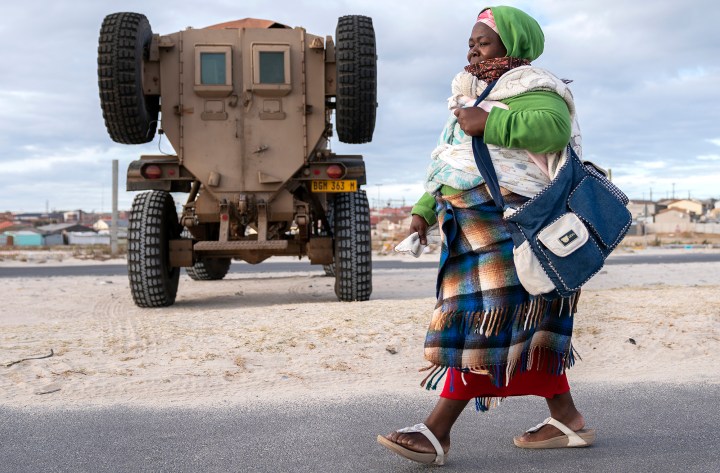
By implementing a strict lockdown, South Africa has been able to dramatically reduce the spread of Covid-19. But the data is likely to change as the government broadens its testing to the wider community where TB and HIV are rife.
As the Covid-19 pandemic continues to surge around the world, countries looking to flatten the curve have opted to implement nationwide lockdowns in an effort to curb the spread of the virus. South Africa has not been an exception and the results of the lockdown thus far illustrate a positive correlation between the lockdown and curbing the spread of the virus. This is shown in Figure 1 below which shows that with the lockdown in place South Africa has managed to reduce the average daily increase of Covid-19 cases from 23.2% prior to the lockdown to 7% during the lockdown.
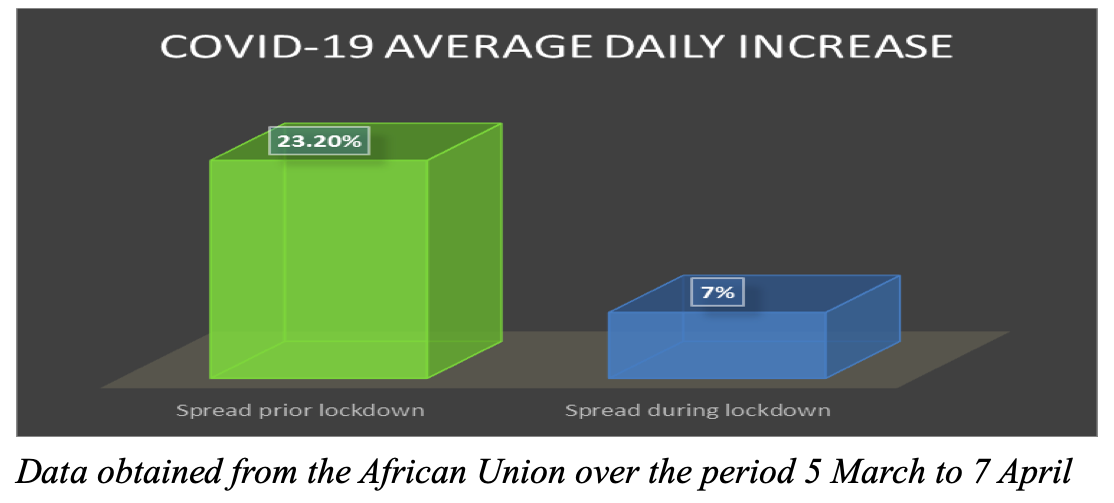
Figure 2 provides a clearer picture of the impact that South Africa’s lockdown has had on the spread of the virus. It shows that since the implementation of the lockdown South Africa has been reporting fewer Covid-19 cases per day. This is shown by the variations in the spread of the virus prior and during the lockdown with the latter visually illustrating a decline in the spread of the virus.
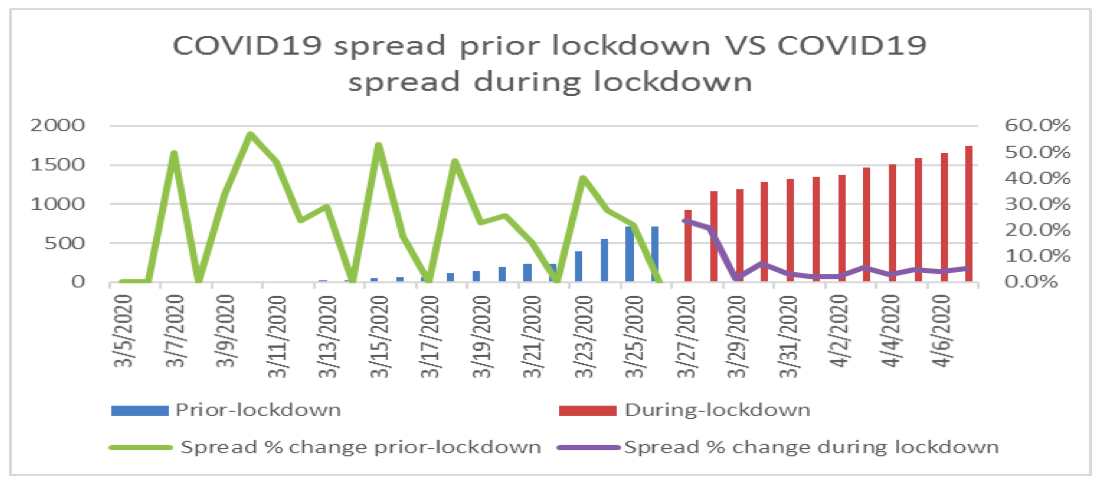
Data obtained from the African Union and updated as of 7 April 2020.
However, these variations are likely to escalate in coming days as 80% of the confirmed cases thus far have been from the private health sector which is better equipped to conduct tests, as illustrated by Figure 3. This suggests that the majority of the tests have been conducted on middle-class people who can afford private lab tests, excluding some 84% of public healthcare patients without medical aid who are at a disadvantage.
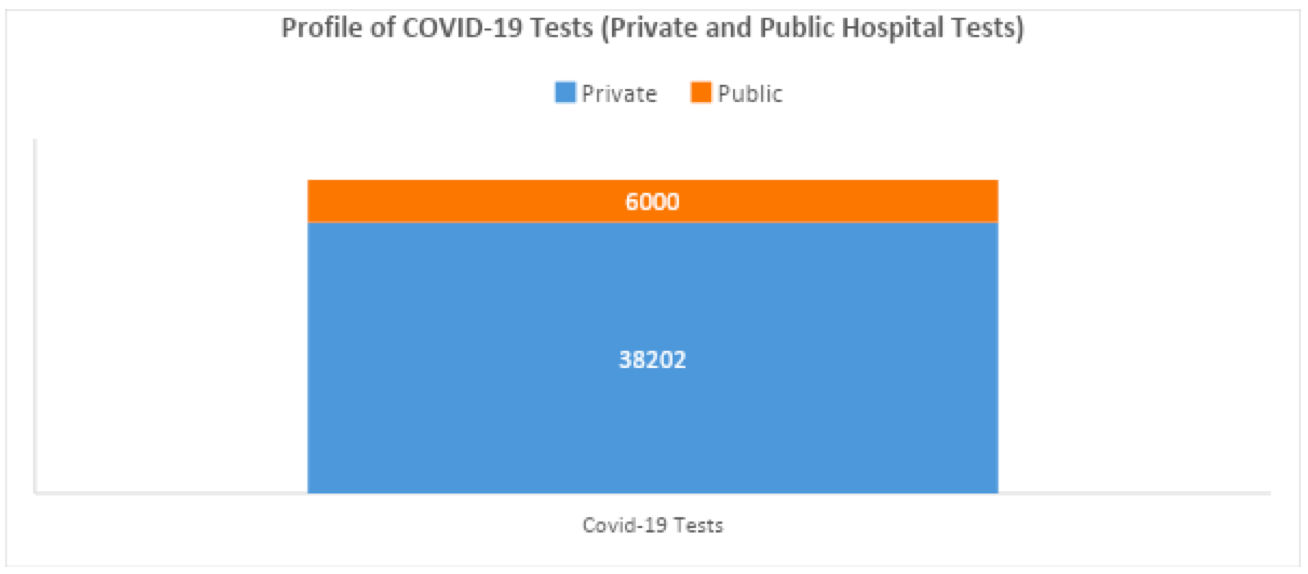
Business Live, 2 April 2020.
In response to this, government has deployed 67 mobile units and drive-through testing centres to bridge the gap between private and public healthcare testing. It is projected that these measures will enable the country to test around 30,000 people a day and provide a clear picture of the “actual” spread of the virus.
Although the lockdown has seemingly slowed the infection rate in South Africa, its greater population and health care system remain at high risk. South Africa remains highly burdened by tuberculosis (TB), with 68,000 people dying from the disease in 2018 alone. This infection rate is among the worst in the world. This will undoubtedly complicate the way in which the health system must attempt to deal with Covid-19.
TB patients, especially those who are undiagnosed or in early treatment for the illness, may be at a high risk of contracting more severe responses to Covid-19 if they become infected.
What’s worse is the symptoms commonly associated with TB (cough, fever, difficulty breathing) overlap with Covid-19, which could make it difficult for health workers to distinguish between the two. Alongside the risk of TB are those 7.7 million currently infected with HIV in South Africa, some of whom are co-infected with HIV and TB.
According to the Centers for Disease Control and Prevention (CDC) in the United States, there are a number of underlying conditions which have been identified in individuals who have experienced more severe cases of Covid-19. Some of these conditions include asthma, cardiovascular disease, diabetes, severe obesity and immune-compromised individuals due to smoking, cancer treatment or poorly controlled HIV/AIDS treatment. The data remains limited on who may be most at risk at this stage in the pandemic, but clinical experts and data from the most severely affected populations identified the groups mentioned above.
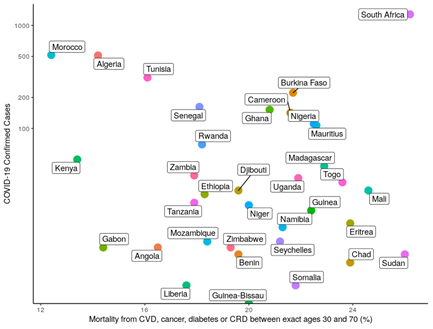
The figure above indicates what percentage of Africans between 30 and 70 years old died in 2016 from cardiovascular disease (CVD), cancer, diabetes or chronic respiratory disease (CRD). This is compared against the number of Covid-19 cases as of 7 April 2020. South Africans are the most at risk of dying of these diseases compared to the rest of the continent.
Diet and lifestyle play an important role in the onset of these diseases and according to the WHO, individuals with underlying conditions such as these are more likely to experience the more severe consequences of Covid-19. TB patients, especially those who are undiagnosed or in early treatment for the illness may be at a high risk of contracting more severe responses to Covid-19 if they become infected. DM
Marcus Hollington is research director at Focal Africa Research. Monique Bennett is a data scientist at Good Governance Africa.
"Information pertaining to Covid-19, vaccines, how to control the spread of the virus and potential treatments is ever-changing. Under the South African Disaster Management Act Regulation 11(5)(c) it is prohibited to publish information through any medium with the intention to deceive people on government measures to address COVID-19. We are therefore disabling the comment section on this article in order to protect both the commenting member and ourselves from potential liability. Should you have additional information that you think we should know, please email [email protected]"





 Become an Insider
Become an Insider